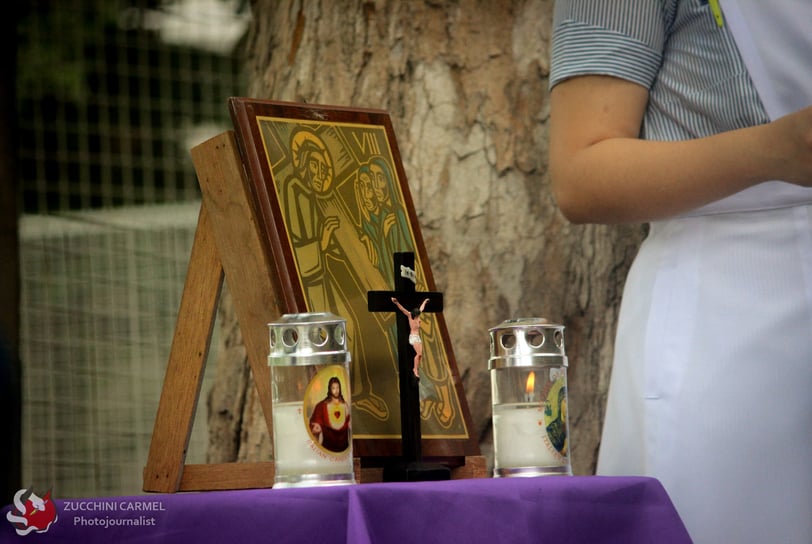Lenten Season: History, Traditions, and How To Act
Delve into the history of Lent and the ways to celebrate it.
WEEKLY POST
Francine Grace R. Mancelita & Precious Jewel T. Cinco
3/25/20242 min read


The Season of Lent is a yearly observance in the Christian liturgical calendar. It begins with Ash Wednesday and culminates with Easter Sunday. In this period, we commemorate the paschal mysteries of Christ’s passion, death, and resurrection.
Lent is 40 days long, thought to be taken from when Jesus fasted for 40 days in the desert. Its practice dates back to the earliest days of the church, perhaps as early as 325 AD. Through the years, the practices and customs observed during Lent have evolved, however the three main customs of praying, fasting, and almsgiving have sustained.
In prayer, we are given the opportunity to connect with God and strengthen our relationship with Him. Lent emphasizes the importance of prayer as a way to be closer to our Lord by communing with Him in prayer, exactly as Jesus had taught us. A tradition commonly practiced by Filipino families is the “Visita Iglesia”, where they visit different churches as they pray the Stations of the Cross, which are the significant chapters in Christ’s crucifixion.
At the same time, we are also encouraged to share in Christ’s suffering through fasting. This does not only mean fasting from meat, but also fasting from things that may lead us to sin. We can begin by fasting from things that we can easily avoid, like social media, gossiping, or even eating out. During one homily, a priest once said that fasting from these common activities helps make the end of the Lenten season much more meaningful.
Finally, almsgiving is one thing that the Church highly encourages during the Lenten season. It is a call to reach out to the brothers and sisters of our community who are in need, just as Christ has done all throughout his ministry.
After all, it is worth remembering that Lent is not just a time for us to repent from our sins and be closer to the Lord, but also a way for us to draw others closer to Him as well.
With that being said, the Lenten season necessitates a delicate balancing act between introspection and action. Which is why it is critical that we understand proper behavior in this season of spiritual reflection. With Lent serving as a time of repentance and preparation for Easter, adhering to certain practices and abstaining from others fosters a deeper connection to one's faith. With this, here are 5 important Do’s and Don’ts to assist individuals honor the significance of this year’s Lenten season.
Photo by: Zucchini Gabales
DO’S
Do engage in prayer and reflection
Do fast and abstain from meat on Ash Wednesday and Good Friday
Do make personal sacrifices (such as giving up a favorite food or hobby)
Do participate in almsgiving
Do seek forgiveness through the sacrament of reconciliation
DON’TS
Don’t encourage distractions that may hinder spiritual growth
Don’t use the Lenten season as an excuse to travel
Don’t engage in gossip and negativity
Don’t neglect attending religious services
Don’t treat Lenten practices without genuine sincerity
In conclusion, observing the Lenten season demands a mindful approach that balances personal sacrifice with spiritual devotion. As we get ready for the pleasure of Easter, let's approach this Lenten journey with sincere intention and seize the chance for introspection, confession, and rejuvenation.


